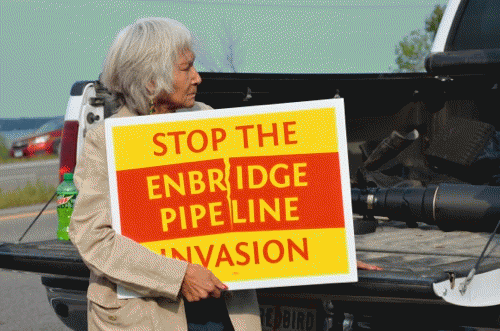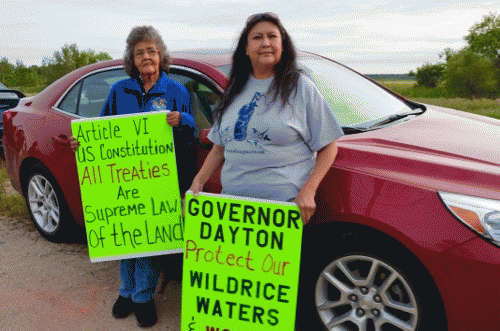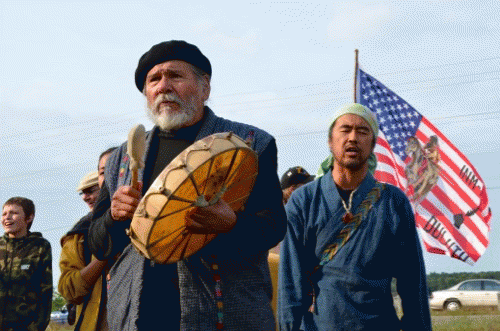Members of Minnesota's Chippewa tribes and the 1855 Treaty Authority began harvesting wild rice at Hole in the Day Lake near Nisswa, Minnesota this week. The lake is named after an Ojibwe chief who was among the negotiators to several treaties with the United States at that time. The 1855 Treaty Authority is independent of tribal governments, but is composed of tribal leaders. In an effort to test gathering rights off reservation land, tribal members were prepared to begin the wild rice harvest without purchasing a state license. The action was designed to test tribal rights under treaties with the federal government. Leaders hoped that a court test of the scope of the treaties would give them more leverage to challenge a proposed pipeline by the Canadian Enbridge Corporation. Tribes say the Sandpiper pipeline will threaten and possibly damage sacred and ancient wild rice beds if Minnesota authorities accept the proposed pipeline route.
They are correct. It will.
A 1999 federal court decision that considered the 1837 treaty between the Chippewa and the federal government concluded the Chippewa did not give up their 1837 rights under the 1855 treaty.
In a surprise move the Minnesota Department of Natural Resources (DNR) did not issue citations or confiscate equipment. Instead the DNR issued a one-day license for the harvest at Hole-In-The-Day.
Col. Ken Soring, chief enforcement officer for the DNR, said the one-day permit was issued without request to honor the importance of wild rice in Chippewa culture, to bring attention to clean-water issues and to pay homage to the late Ojibwe Chief Hole in the Day, for whom the lake is named, according to the Minneapolis Star Tribune.
Native activists have vowed to return without the unasked-for-permit and continue gathering rice on Hole in the Day Lake until they are arrested, equipment is confiscated, or citations are issued. They want to bring the issue to court for a definitive ruling on treaty rights.
I am not sure this is wise. It may be a clever legal move, but it has the possibility of backfiring on the tribes, who have gained much goodwill and support from other residents of this area because of their steadfast fight against Enbridge's proposed super oil pipeline through the pristine northern lakes area. Enbridge's project has the potential to carry more oil than the Keystone XL.
More protests would also be a slap in the face to the DNR, which has tried mightily to avoid confrontation. Mistakes and some hubris aside, the DNR has done a much to protect Minnesota's environment. No organization and no person are perfect.
Wild rice is a sacred food for our native neighbors. It is ancient, it is pure, and it is a gift from the Creator.
I was at the first event and mostly observed and took some video for a friend. The ceremony of giving thanks for the harvest was moving. I had no intention of writing about it and was happy to see a possible confrontation defused by DNR officials.
It was also nerve-wracking to be positioned along a four-lane highway and watching young children darting across with little supervision. It is a miracle that no one was injured.
I have been covering the pipeline issues here in Minnesota and in North Dakota for at least three years now. This potential action confuses and saddens me. Forced confrontation always does. As a member of the white community and also someone who has worked very hard and with conviction to support treaty rights, I am concerned that much accumulated goodwill could be erased.
(Note: You can view every article as one long page if you sign up as an Advocate Member, or higher).








